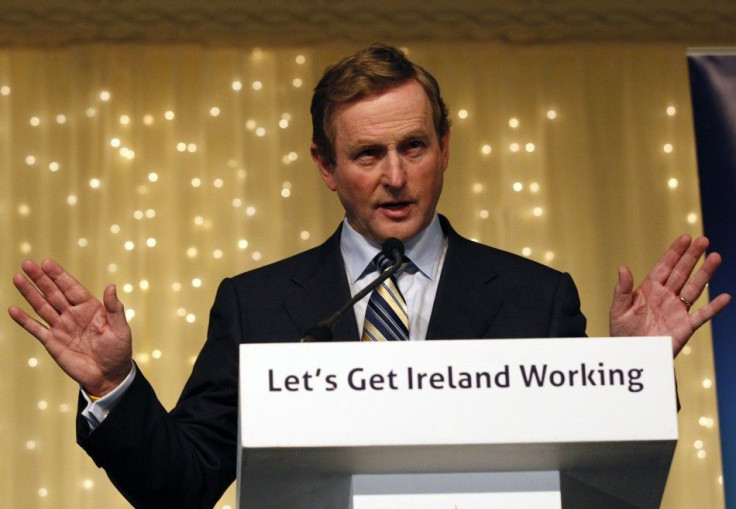Irish outlook to remain grim even if Fine Gael wins better bailout deal

As Irish elections have drawn to a close and the prospect of a coalition government led by the Fine Gael party appears strong, the focus has now turned to what the new government can do in terms of negotiating better terms for the country's bailout package.
The formation of the new government will not only reduce political uncertainty, but will also open up new opportunities for renegotiating with the European leaders the terms of the 67-billin-pound bailout.
The focus of the Fine Gael party and the Labour, its most likely coalition partner, will be to get the creditors reduce the interest rate on the loan. This is especially important for Gael leader Enda Kenny, who had made a campaign pledge to get the rates slashed.
The new coalition will hope to renegotiate the interest rate that Ireland pays on its loans as well as persuade European policymakers to back proposals to impose losses on senior Irish bank debt holders, according to Ben May, European economist at Capital Economics.
However, May doubts if this measure will alone make sure the borrowing costs are significantly reduced. While it is not out of the question that the Government might be able to negotiate a slightly lower interest rate, we doubt that it will be able to successfully gain a significant reduction in its borrowing costs.
After all, Germany’s attitude towards extending support once again appears to be hardening. Indeed, at the very least, Germany and some of the other core economies will probably demand unpalatable concessions, such as an increase in Ireland’s corporation tax rate, in return.
The analyst also says irrespective of whether the new government will be able to renegotiate a better bailout deal, the outlook for the country remains grim owing to looming fiscal squeeze and waning consumer confidence. Since Ireland must meet its existing budget deficit goals in order to gain future loan tranches from its bail-out facility, extra fiscal measures may need to be implemented later this year, he notes.
The upshot is that while last week’s general election may have reduced the level of political uncertainty in Ireland, we remain doubtful as to whether Ireland can avoid falling back into recession.
© Copyright IBTimes 2024. All rights reserved.











